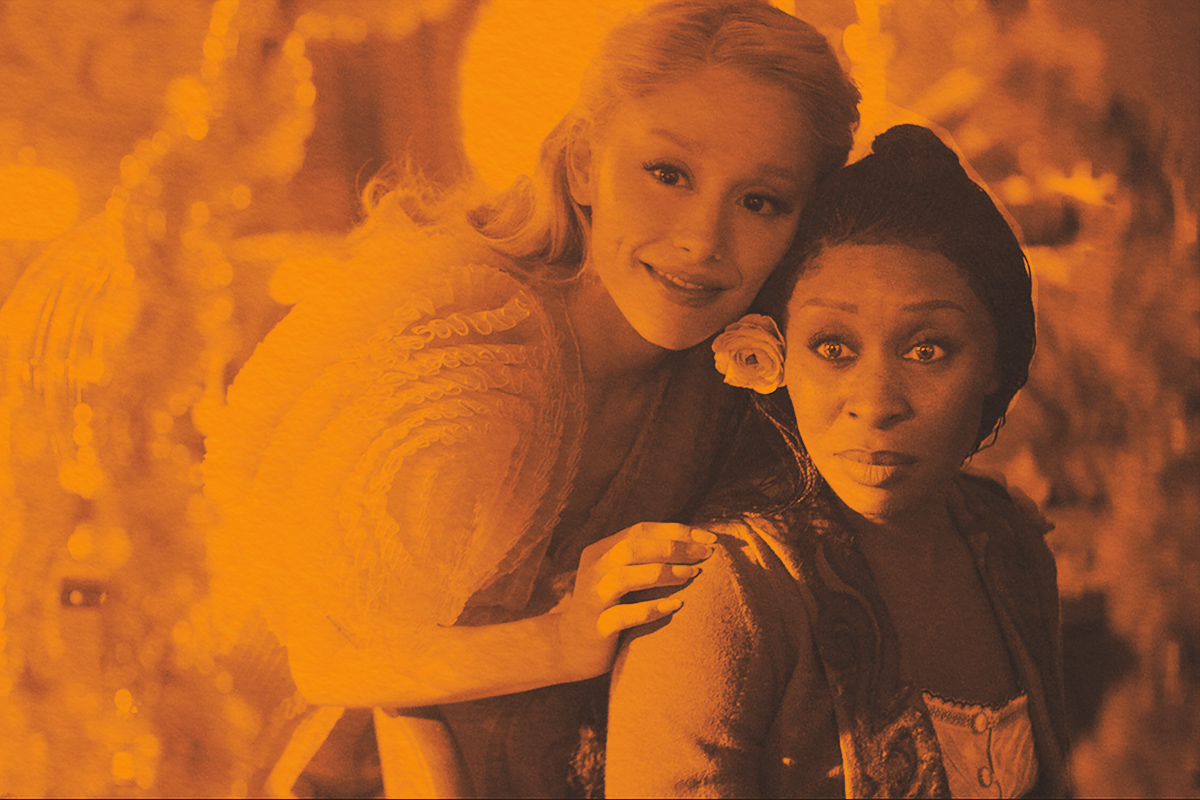What's the difference between direct and indirect objects? | | Some grammar lessons need simplifying. If direct and indirect objects make your eyes glaze, this explanation is as easy as it gets. | |  | Rachel Gresh |
|
| |  | | I f you're one of the millions of audience members (myself included) who have seen the new musical film Wicked, chances are, its catchy tunes have been stuck in your head for weeks. Good news: This soundtrack also allows us to brush up on some key grammar concepts, specifically direct and indirect objects. Perhaps you're having unwelcome flashbacks to English classes, but give me a few minutes of your time. I'll try to clear up some confusion about these fundamental building blocks of many sentences.
Consider a line from Galinda's signature song, "Popular": "I'll show you what shoes to wear." Here, we encounter both a direct object and an indirect object — "you" is indirect, and "shoes" is direct. There are a few rules of thumb for quickly deciphering which is which. Objects in a sentence (nouns or pronouns) receive the action of the verb, either directly or indirectly. A direct object answers "What?" or "Whom?" by receiving the action directly. The indirect object answers "To/For what?" or "To/For whom?" because it indirectly receives the action. So, what is being shown? The shoes (direct object). To whom? You (indirect object).
In the song's line, "I'll teach you the proper ploys," the verb "teach" acts on two objects. To decipher which is which, ask these questions: What is being taught? The proper ploys (direct object). To whom? You (indirect object).
Of course, direct and indirect objects extend past musical lyrics into everyday conversation. Consider the sentence, "Mary threw the football to Mark." She threw what? The football (direct object). To whom? Mark (indirect object). This can get confusing when sentence structure isn't as straightforward: "Mary threw Mark the football." However, the questions are still answered in the same way, and the object classifications remain the same.
Not all sentences feature both direct and indirect objects. Take the lyric, "Follow my lead" (from "Popular" again). Here, "follow" is the verb, and "my lead" is the direct object. There is no indirect object because no one is receiving the action for something. In the signature lyric, "You will be: Popular!" there is no object at all. Since "be" doesn't convey an action performed on an object, no direct object is needed. Sentence constructions without objects are actually quite popular: "She ran," "The sun is shining," and "The cat meowed." These verbs don't require a direct object to understand the meaning of the sentence. |
| | Continue reading | |  |
| |
| | Advertisers help keep Word Smarts free | |
Emoji Decoded | |  | | Wrapped Present | | | Meaning: Displays a wrapped gift, typically shown with a ribbon and bow.
Evolution: The Wrapped Present was introduced in Emoji 1.0 as one of the original emoji set's holiday symbols. The design varies by platform but always features gift wrap and decorative elements, making it appropriate for year-round celebrations.
Usage: [Caption on a photo of wrapped presents:] Ready for the white elephant exchange! 🐘🎁 |
|
 | | Wrapped Present | | | Meaning: Displays a wrapped gift, typically shown with a ribbon and bow.
Evolution: The Wrapped Present was introduced in Emoji 1.0 as one of the original emoji set's holiday symbols. The design varies by platform but always features gift wrap and decorative elements, making it appropriate for year-round celebrations.
Usage: [Caption on a photo of wrapped presents:] Ready for the white elephant exchange! 🐘🎁 |
|
| |
Have you read? | |  | | What I Ate in One Year | | By Stanley Tucci | | "This follow-up to Tucci's 2021 memoir, 'Taste: My Life Through Food,' is structured as a food diary, and it is the book's quotidian moments that are especially engaging, such as quiet dinners at home with his wife, Felicity Blunt; making pastina, that Italian cure-all, for his son; or rescuing wilting produce from the fridge." | | | | Kirkus Reviews | | | | We independently evaluate all recommended products and services. If you click on links we provide, we may receive compensation. |
|
 | | What I Ate in One Year | | By Stanley Tucci | | "This follow-up to Tucci's 2021 memoir, 'Taste: My Life Through Food,' is structured as a food diary, and it is the book's quotidian moments that are especially engaging, such as quiet dinners at home with his wife, Felicity Blunt; making pastina, that Italian cure-all, for his son; or rescuing wilting produce from the fridge." | | | | Kirkus Reviews | | | | We independently evaluate all recommended products and services. If you click on links we provide, we may receive compensation. |
|
| |
| | Advertisers help keep Word Smarts free | |
|

No comments:
Post a Comment